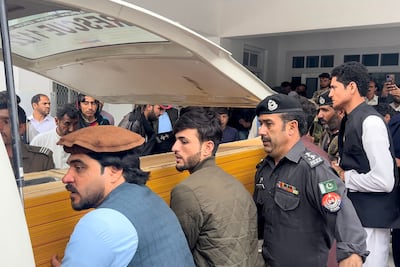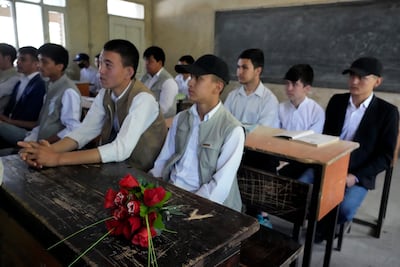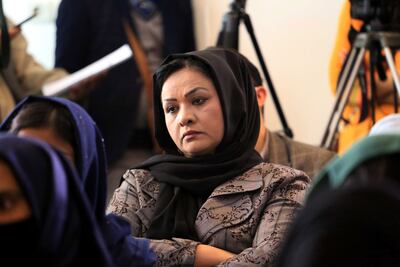In a rapidly evolving world, the pivotal role of education has never been more evident. However, even with significant agreements such as the Safe Schools Declaration launched in Oslo in 2015 in place, the alarming rise in attacks on schools hinders human growth, stifles economic development and creates persistent obstacles to advancement. The Declaration vowed to shield students, educators and academic institutions during times of conflict. Yet, last year saw a staggering 112 per cent increase in assaults on schools and medical facilities – leaving us with a sobering reminder of the urgent need to reinforce and strengthen measures to protect education.
The International Day to Protect Education from Attack, established in 2020 by Qatar and co-sponsored by 62 countries, isn’t merely a ceremonial acknowledgement. It serves a purpose beyond mere symbolism. This day underscores the fundamental right of every child to secure and uninterrupted learning.
According to the report Education under Attack 2022, around the world at least 5,000 reports of attacks on education and cases of military use of schools and universities took place in 2020 and 2021 around the world, directly harming or killing over 9,000 students and educators. Some argue that attacks on fundamental infrastructure are inevitable consequences of war, unrest and conflicts. However, we must collectively challenge this perspective and reassert the imperative of preserving these essential structures including educational institutions.

The repercussions of unsafe educational environments are profound. The International Committee of the Red Cross reports that children in conflict zones face recruitment into armed groups, physical harm, displacement and a myriad of other abuses. If global leaders are genuinely committed to international humanitarian law, they must ensure these children receive the special respect, protection and access to essential services they're entitled to – and that includes education.
Our efforts to ensure secure educational environments are not merely acts of charity but an investment in a future where the narratives are not dictated by resentment, anger or disillusionment. With the World Bank's projection that by 2030 up to two-thirds of the world's extreme poor will live in fragile, conflict-ridden regions, this is a pressing global concern. When children bear the brunt of their community's perceived wrongdoings, we inadvertently sow the seeds of radicalisation that is a threat to everyone.
Schools are more than just brick and mortar structures; they are sanctuaries. They are where children bolster their self-worth, develop resilience against bullying and prejudice, acquire the skills to champion well-being and find constructive solutions to their realities. Schools also serve as a key defence against the growing menace of "learning poverty" – the inability to read and comprehend basic text by age 10. Shockingly, current data estimates that 7 in 10 children in developing nations could be grappling with this issue. This is as much about protecting children as it is about fortifying a shared future.

Women and girls are often the primary victims of attacks against education. In Nigeria, the extremist group Boko Haram, whose name roughly translates to "Western education is forbidden" has repeatedly targeted schools, educators and students. The infamous abduction of 276 schoolgirls from Chibok in 2014 highlighted the dangers faced by students, especially girls, in pursuit of education. Today, 98 of these girls remain in captivity.
In Afghanistan, the Taliban during their previous rule from 1996 to 2001 had imposed draconian measures that severely curtailed women’s rights, particularly in education. Girls’ schools were shut down, and women were barred from universities, effectively sidelining half the population from intellectual growth and societal inclusion. This meant that Afghan women were also not involved in the workforce, politics and civil society. The consequences of these restrictions were profound.
However, after 2001, with the Taliban’s influence diminished, there was a resurgence in women’s education – much needed hope for girls and women to make up for lost time.

The return of the Taliban to power in 2021 initially displayed a more lenient stance towards women’s rights including their right to education. It was short-lived. In March 2022, the Taliban imposed a ban on girls’ high school education before later expanding it to include universities. They went as far as banning Afghan women from working for the UN and nongovernmental organisations in Afghanistan.
The UAE was among the countries that strongly condemned the decision to ban Afghan women from accessing secondary and higher education, stating that it violated fundamental human rights, but that it also contravened the teachings of Islam. The UAE government and local entities including Dubai Chambers collaborated with Emirati businessman and philanthropist Khalaf Ahmad Al Habtoor, to bring around 100 female Afghan students to study at the University of Dubai. Unfortunately, they were stopped by the Taliban from boarding the plane to the UAE, and only three made it to Dubai. On an international scale, while sitting on the United Nations Security Council, the UAE co-drafted with Japan a unanimously adopted resolution that condemned that decision. Resolution 2679 called for the full, equal, meaningful and safe participation of women and girls in Afghanistan. It also reaffirmed the indispensable role of women in Afghan society.
The narrative is clear and pressing: every child, irrespective of their geographic or socio-economic circumstances, has an inalienable right to education in a safe environment. Achieving this is not solely the responsibility of policymakers and organisations but a collective duty – not just on International Day to Protect Education from Attack, but every day. We must prioritise and collaborate to fortify educational spaces, ensuring a more promising path for the generations ahead.


